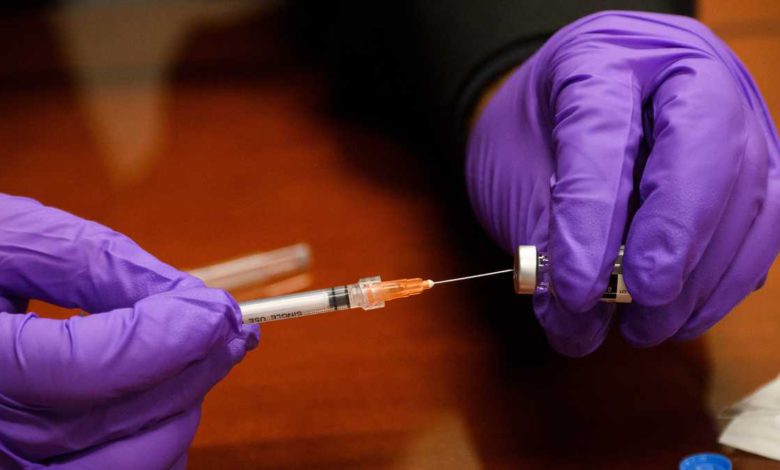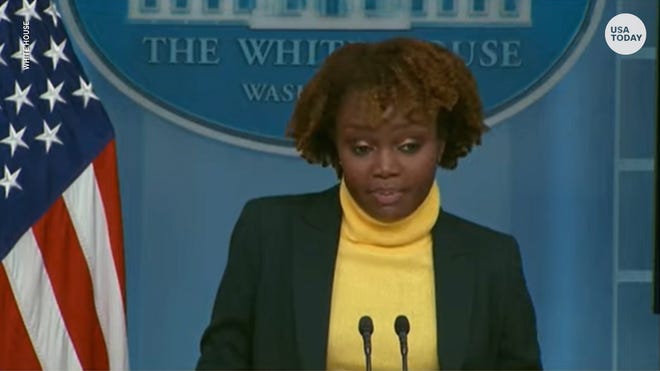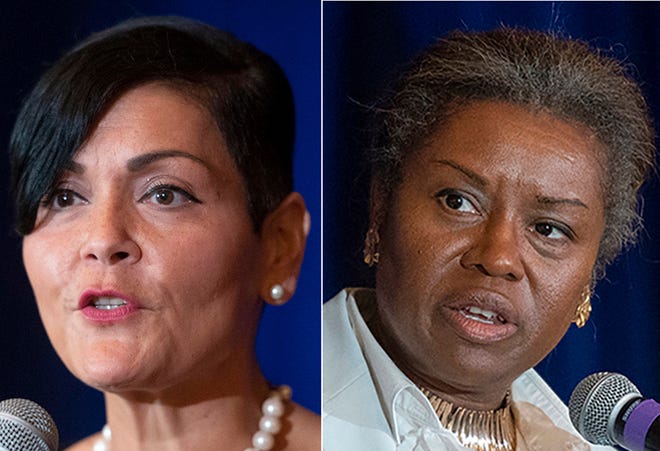

Video above: Biden addresses COVID-19 responseTwenty-six states in the U.S. have fully vaccinated more than half of their population, federal data shows, but some hospitals are still filling up with COVID-19 patients who did not get their shots.In Colorado, most of those who are eligible to get vaccinated against COVID-19 have received at least one dose so far, Gov. Jared Polis said Friday, highlighting the milestone.With 75% of Colorado's eligible residents having initiated vaccination, the governor pointed out it's "an important accomplishment, but it also means that there's 25%, one in four Coloradans, who are eligible, who still need to go out and get protected so that we can end this pandemic."Polis pleaded with the unvaccinated to get their shots, reasoning that they hold the key to the availability of critical health care."We actually have the lowest ICU available rate that we've had since the start of this crisis, in part due to the unvaccinated with COVID and just other types of trauma that goes up seasonally this time of year," Polis explained. "Some hospitals are reaching very close to their capacity limits. And that wouldn't be happening if people were vaccinated."Colorado has one the nation's lowest COVID-19 case rates, with 163.6 new cases per 100,000 people over the past week, according to data published Saturday by the US Centers for Disease Control and Prevention (CDC).Meanwhile on the East Coast, Vermont, Connecticut and Massachusetts have fully vaccinated at least two-thirds of their population. The trio are also among the states seeing the lowest rate of new cases per capita over the past week, CDC data shows.Overall, the U.S. has fully vaccinated 53.7% of its total population while 73.7% of people 12 and older have received at least one dose as of Saturday, according to CDC data. Full vaccination offers optimal protection from the virus' most extreme consequences, including severe illness and death.And even though the unvaccinated now comprise a slight minority of the total population, COVID-19 patients are straining health care resources in ways that health experts have been insisting are preventable via inoculation.At St. Anthony's Hospital in St. Petersburg, COVID-19 patients are taking hold of ICU capacity. Hospital president Scott Smith told CNN that 27 of the facility's 28 ICU beds are for COVID-19 patients, and around 85% of the hospital's COVID-19 patients are unvaccinated.Florida has fully vaccinated 54.8% of its residents as of Saturday, CDC data shows. As of Saturday, the state was using more than 43% of its ICU beds to treat COVID-19 patients, according to data from the U.S. Department of Health and Human Services. Nationwide, nearly 31% of ICU beds were being used for COVID-19 patients.Vaccines provide critical protection against variantsDespite the prevalence of the more contagious Delta variant in the U.S., vaccines have shown to remain highly effective against hospitalization, a CDC study found.Among all ages, the Moderna vaccine was 95% effective against hospitalization, while the Pfizer/BioNTech vaccine had an 80% effectiveness and the Johnson & Johnson vaccine had a 60% effectiveness, the study found.But among those 75 and older, the study found vaccine effectiveness against hospitalization was lower. Effectiveness against hospitalization for adults under 75 was 89%, but it was 76% among those age 75 and older, the study found.Meanwhile, the Mu variant of COVID-19 has emerged on health experts' radar, but Dr. Anthony Fauci assured people Friday that it doesn't exhibit signs of being more resistant to the vaccines more than the Delta variant."The reason it was brought to attention, it had a number of mutations that were of interest. But when you look at the effect of antibodies against these mutations, it is not a matter of alarm, in that although it diminishes somewhat the protection, it falls well within the range of Delta and Beta (another coronavirus variant)," Fauci said at a White House COVID-19 Response Team briefing.And as federal health officials consider a booster vaccine dose for most Americans, full vaccination still means either two doses of an mRNA COVID-19 vaccine or one dose of Johnson & Johnson's COVID-19 vaccine, CDC Director Dr. Rochelle Walensky said Friday. But she acknowledged that may change."I anticipate over time that may be updated, but we will leave that to our advisers to, to give us some recommendations," she said during a White House Covid-19 Response Team briefing.Testing helps avoid school quarantines, expert saysMeanwhile, as schools nationwide struggle with returning safely to classrooms, one former federal health official urged that COVID-19 testing is an effective approach to preventing outbreaks.Placing students in "pods" in schools and routine asymptomatic testing are the most effective ways to try and reduce spread in schools, former U.S. Food and Drug Administration Commissioner Dr. Scott Gottlieb said.He explained that regular testing can prevent a large number of students from quarantining, and therefore, not miss classes."Rather than quarantine that whole classroom you just test them in a serial fashion to make sure that you didn't have an exposure that led to a downstream case and so you can actually use testing to prevent quarantines." he said Friday during an Axios event.He added that even as COVID-19 case rates decline, children are still suffering from a surge."Even as cases decline in every age category, the one age category where it's continuing to increase is in school aged children," he saidIn Fulton County, Georgia, at least seven schools will move to remote learning starting Monday, the district said in a Facebook post.Students at Westlake High School, Sandtown Middle School and Renaissance Middle Schools are moving to remote learning due to a "high volume of positive cases and direct contacts" and have reached Level 2, which includes having 3 or more students or staff members test positive at the same site. The school system said it anticipates in-person learning to resume at these three schools on Sept. 21.
Video above: Biden addresses COVID-19 response
Twenty-six states in the U.S. have fully vaccinated more than half of their population, federal data shows, but some hospitals are still filling up with COVID-19 patients who did not get their shots.
In Colorado, most of those who are eligible to get vaccinated against COVID-19 have received at least one dose so far, Gov. Jared Polis said Friday, highlighting the milestone.
With 75% of Colorado's eligible residents having initiated vaccination, the governor pointed out it's "an important accomplishment, but it also means that there's 25%, one in four Coloradans, who are eligible, who still need to go out and get protected so that we can end this pandemic."
Polis pleaded with the unvaccinated to get their shots, reasoning that they hold the key to the availability of critical health care.
"We actually have the lowest ICU available rate that we've had since the start of this crisis, in part due to the unvaccinated with COVID and just other types of trauma that goes up seasonally this time of year," Polis explained. "Some hospitals are reaching very close to their capacity limits. And that wouldn't be happening if people were vaccinated."
Colorado has one the nation's lowest COVID-19 case rates, with 163.6 new cases per 100,000 people over the past week, according to data published Saturday by the US Centers for Disease Control and Prevention (CDC).
Meanwhile on the East Coast, Vermont, Connecticut and Massachusetts have fully vaccinated at least two-thirds of their population. The trio are also among the states seeing the lowest rate of new cases per capita over the past week, CDC data shows.
Overall, the U.S. has fully vaccinated 53.7% of its total population while 73.7% of people 12 and older have received at least one dose as of Saturday, according to CDC data. Full vaccination offers optimal protection from the virus' most extreme consequences, including severe illness and death.
And even though the unvaccinated now comprise a slight minority of the total population, COVID-19 patients are straining health care resources in ways that health experts have been insisting are preventable via inoculation.
At St. Anthony's Hospital in St. Petersburg, COVID-19 patients are taking hold of ICU capacity. Hospital president Scott Smith told CNN that 27 of the facility's 28 ICU beds are for COVID-19 patients, and around 85% of the hospital's COVID-19 patients are unvaccinated.
Florida has fully vaccinated 54.8% of its residents as of Saturday, CDC data shows. As of Saturday, the state was using more than 43% of its ICU beds to treat COVID-19 patients, according to data from the U.S. Department of Health and Human Services. Nationwide, nearly 31% of ICU beds were being used for COVID-19 patients.
Vaccines provide critical protection against variants
Despite the prevalence of the more contagious Delta variant in the U.S., vaccines have shown to remain highly effective against hospitalization, a CDC study found.
Among all ages, the Moderna vaccine was 95% effective against hospitalization, while the Pfizer/BioNTech vaccine had an 80% effectiveness and the Johnson & Johnson vaccine had a 60% effectiveness, the study found.
But among those 75 and older, the study found vaccine effectiveness against hospitalization was lower. Effectiveness against hospitalization for adults under 75 was 89%, but it was 76% among those age 75 and older, the study found.
Meanwhile, the Mu variant of COVID-19 has emerged on health experts' radar, but Dr. Anthony Fauci assured people Friday that it doesn't exhibit signs of being more resistant to the vaccines more than the Delta variant.
"The reason it was brought to attention, it had a number of mutations that were of interest. But when you look at the effect of antibodies against these mutations, it is not a matter of alarm, in that although it diminishes somewhat the protection, it falls well within the range of Delta and Beta (another coronavirus variant)," Fauci said at a White House COVID-19 Response Team briefing.
And as federal health officials consider a booster vaccine dose for most Americans, full vaccination still means either two doses of an mRNA COVID-19 vaccine or one dose of Johnson & Johnson's COVID-19 vaccine, CDC Director Dr. Rochelle Walensky said Friday. But she acknowledged that may change.
"I anticipate over time that may be updated, but we will leave that to our advisers to, to give us some recommendations," she said during a White House Covid-19 Response Team briefing.
Testing helps avoid school quarantines, expert says
Meanwhile, as schools nationwide struggle with returning safely to classrooms, one former federal health official urged that COVID-19 testing is an effective approach to preventing outbreaks.
Placing students in "pods" in schools and routine asymptomatic testing are the most effective ways to try and reduce spread in schools, former U.S. Food and Drug Administration Commissioner Dr. Scott Gottlieb said.
He explained that regular testing can prevent a large number of students from quarantining, and therefore, not miss classes.
"Rather than quarantine that whole classroom you just test them in a serial fashion to make sure that you didn't have an exposure that led to a downstream case and so you can actually use testing to prevent quarantines." he said Friday during an Axios event.
He added that even as COVID-19 case rates decline, children are still suffering from a surge.
"Even as cases decline in every age category, the one age category where it's continuing to increase is in school aged children," he said
In Fulton County, Georgia, at least seven schools will move to remote learning starting Monday, the district said in a Facebook post.
Students at Westlake High School, Sandtown Middle School and Renaissance Middle Schools are moving to remote learning due to a "high volume of positive cases and direct contacts" and have reached Level 2, which includes having 3 or more students or staff members test positive at the same site. The school system said it anticipates in-person learning to resume at these three schools on Sept. 21.
Source link









